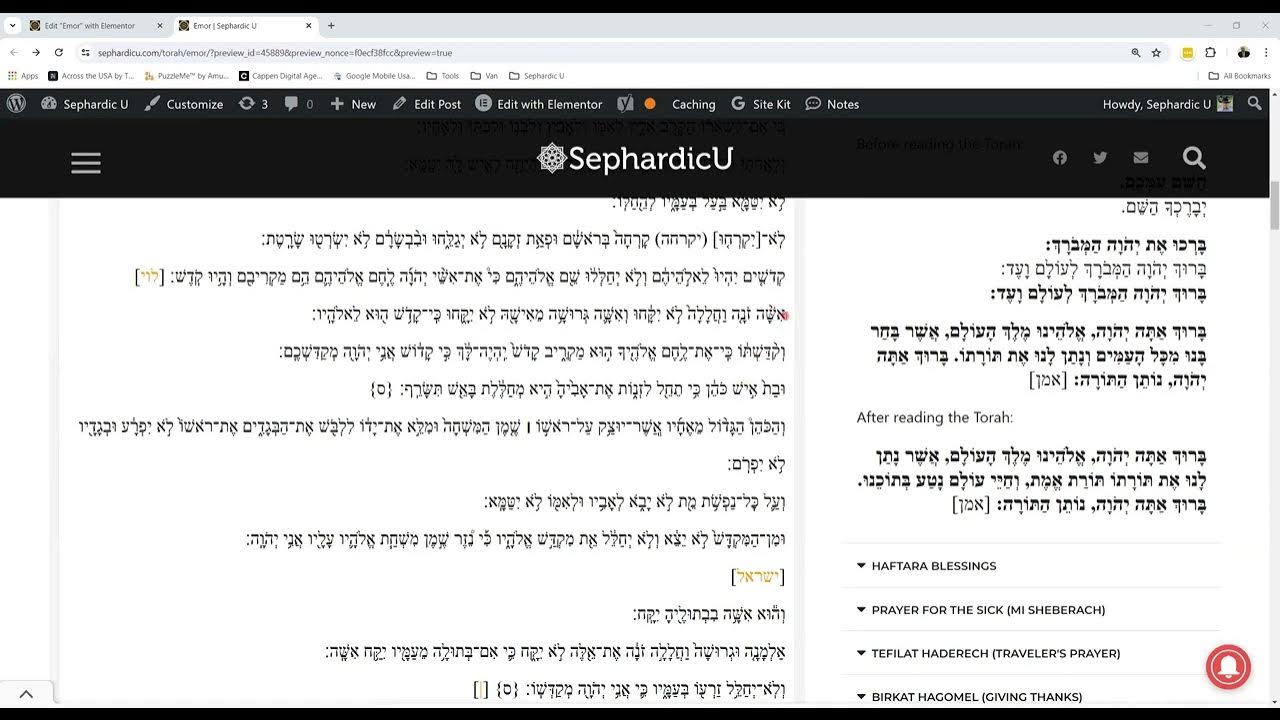The Torah refers to the content of the Tablets of the Law, given to Moshe on Mount Sinai, not as the Ten Commandments, but rather as עשרת הדברים – the Ten Concepts (Ex. 34:28; Det. 4:13; 10:4). That is because the first and the last of the ten concepts cannot be counted as commandments, hence the title of this article. The revelation on Mount Sinai is the formative moment of the Nation of Israel and their acceptance of the Divine covenant. As such, we expect it to present much more than what seems to be a random collection of laws. The Ten Concepts, as a covenantal document, should present us with a theology and a way of life and guide us on a path of spiritual growth, providing a sense of direction, purpose, and fulfillment.
In order to see the Ten Concepts as a guide for life, we will have to momentarily step out of the confinements of the Halakhic mindset. That mindset tends to quantify and qualify every word of the Torah, or at least its legal parts. Each law or commandment is analyzed thoroughly to determine its rigid boundaries, where and when it applies and to whom, and what is the reward for observing it or punishment for transgressing it. Guided by that perception, we ask questions such as:
- How does one observe the commandment “I am your God”? Is it a requirement to generally bear in mind that thought, or must one make a proclamation of faith on a regular basis?
- Why is stealing, which is a monetary offense, mentioned alongside capital sins such as adultery and murder?
- What is the definition of coveting? Does one transgress the prohibition by wanting what another person has? How is the transgression evaluated?
- According to the interpretation that the prohibition against stealing refers to kidnapping, which carries the death penalty, why are giving false testimony and coveting included in the same set of laws?
The answer to all these questions is that the covenant of the Ten Concepts is not a legal, but rather an educational covenant. The details of the laws will be presented in other chapters of the Torah, but the goal of the Ten Concepts is to delineate a way of redemptive, meaningful life, which has the potential to eliminate man-made evil, and which is the greatest reward one can hope for. The general framework of that way of life is this: As human beings, we are entitled to wonderful gifts, which have to do with our relationships with God, with others, and with ourselves. Once we learn to appreciate what we have, we can mature to the stage of not infringing upon the rights of others. Once that second stage, which is detailed in the second half of the Decalogue, is achieved, we will complete a paradigm shift. Instead of directing our efforts at competing with others who have more, we will focus on realizing our potential and counting our blessings, and we will use them for the benefit of humanity, faithful to the golden rule: love the other as you love yourself.
Let us see how this guide is expressed through the Ten Concepts. The concepts are structured as two sets of four commandments each, with an introduction and a conclusion:
Introduction: God has taken you out of Egypt, the house of bondage, and has given you freedom. This is a statement, not a commandment, and it conveys the message that all humans are entitled to freedom. The gift of freedom goes hand-in-hand with the gift of spirituality, because it is the ability to communicate with the divine which allows us to rise above the mundane concerns, and to not succumb to subjugation by oppressors.
First set of commandments: Appreciate Your Gifts
First commandment: you shall not worship idols. Idolatry is diametrically opposed to the idea of equality. When we perceive God as having no image, we understand that the image of God, imbedded in humans, is distinct of physical appearance. When we create idols, we identify God with one physical image and reject others. Idolatry also allows humans to cast themselves as gods or demi-gods, thus oppressing and controlling others. Rejecting idolatry is embracing the gift of freedom and equality.
Second commandment: You shall not carry God’s name in vein. This is a reiteration of the introduction, stating that one of the greatest gifts we have is the ability to know God by name and to be able to communicate with him. The craving for the divine is imprinted in the human genes, and it drives us to constantly aspire for a nobler existence. When we have the rare moment of genuine, heartfelt prayer, or when we drink, awestruck, the beauty and magnificence of natural phenomena, we feel closer to God and energized by the experience. Unfortunately, there are many who prey on our need for and admiration of the divine. Those people hide malicious intentions under garbs of holiness, and they carry God’s name in vein as they engage in corruption and harassment. The Torah reminds us to appreciate the gift of the presence of God in our life, and warns us not to abuse it.
Third commandment: Remember and sanctify the Shabbat, by refraining from work on that day. The Shabbat is one of the greatest gifts given to the Israelites, and subsequently, to all mankind. It allows us to rest and replenish our physical and emotional energies. It provides us with the opportunity to spend quality time with family and friends, while simultaneously being the great equalizer, eroding distinction between rich and poor, and in antiquity, between the master and his servants.
Fourth commandment: Respect and cherish the gift of family. Tensions within the family are inevitable, but if family members learn to overcome differences and focus on their kinship and love to each other, they will achieve the reward promised at the end of the first set of commandments: long and joyful life. Research on longevity has shown that cohesive families, in which three or four generations live in close quarters and are supportive of each other, enjoy a life-span longer that the average for their location and ethnicity.
Second set of commandments: Respect the Rights of Others
First commandment: You shall not kill. Plain and simple, this commandment, which is an obvious and natural law, reminds us that we are not allowed to take one’s life.
Second commandment: You shall not commit adultery. The admonition against adulterous relationship is repeated, with a specification of the punishment, elsewhere. Here it comes to warn us against infringing upon the loving relationships of others.
Third commandment: You shall not steal. Like the two previous ones, this is a natural and universal law, which means exactly what it says: do not take the property of others.
Fourth commandment: You shall not bear false testimony against another person. The Torah has already established, immediately following the story of the flood, the importance of a robust judicial system. Throughout the book of Genesis and the story of the Exodus we learn of the perils of an unjust regimes, and shortly before the giving of the law, Yitro helps Moshe institute a judicial system. The Torah and the bible will return to this theme many times, to show us how essential it is to the proper functioning of human society. Hence the warning: distorting justice by falsely testifying denies others of their right to due process and fair treatment. This commandment concludes the second set, which speaks of infringement of the rights of others in descending order: do not inflict harm on the body, relationships, property, and rights, of another person.
Conclusion: You will not covet – it will simply not occur to you!
Now that the two sets of commandments have been presented, the Israelites understand the full vision of the Torah for mankind. We are given the great gifts of freedom, spirituality, and family, and these gifts should suffice for us to be happy with what we have and not infringe upon the rights of others. When this is achieved, we are ready for the ultimate result לא תחמוד – these two words should not be translated as a prohibition, you shall not covet, but rather as a statement or a promise: you will never feel the need to covet.
The Ten Concepts, with their introduction, eight commandments, and conclusion, are perfectly framed in an envelope which succinctly conveys the same message of appreciation of what we have and respect for the rights and possessions of others. If we read just the first word of each part with the last two words of the same part, we will receive the following:
אנכי… נותן לך – לא… אשר לרעך
I am giving you [all these gifts and blessings, and that should satisfy you and remind you that you do] not [need that] which belongs to your friend.
May we all learn to cherish what we have and respect what others have.








Parashat Behar – Weekday Torah Reading (Moroccan TeAmim)